Song of the week: La sauterelle (F. Poulenc) - T. Allen, L. Friend (dir.)
 Many French poems talk about animals. I don't know why; it might be due to medieval bestiaries or those fables by Jean de la Fontaine but the point is that we find lots of beasts in French poetry and you already know how poems become songs... I'm not saying that German poetry, for instance, doesn't refer to animals but, according to the Lieder, those are mostly birds, while in French poetry, we read about the most unusual creatures. We mentioned some of them when we talked about Chabrier's songs with the Ronsards' poems or Ravel and Renard's songs. Today our guests are Poulenc and Apollinaire.
Many French poems talk about animals. I don't know why; it might be due to medieval bestiaries or those fables by Jean de la Fontaine but the point is that we find lots of beasts in French poetry and you already know how poems become songs... I'm not saying that German poetry, for instance, doesn't refer to animals but, according to the Lieder, those are mostly birds, while in French poetry, we read about the most unusual creatures. We mentioned some of them when we talked about Chabrier's songs with the Ronsards' poems or Ravel and Renard's songs. Today our guests are Poulenc and Apollinaire.
La sauterelle - R. Dufy
Many French poems talk about animals. I don't know why; it might be due to medieval bestiaries or those fables by Jean de la Fontaine but the point is that we find lots of beasts in French poetry and you already know how poems become songs... I'm not saying that German poetry, for instance, doesn't refer to animals but, according to the Lieder, those are mostly birds, while in French poetry, we read about the most unusual creatures. We mentioned some of them when we talked about Chabrier's songs with the Ronsards' poems or Ravel and Renard's songs. Today our guests are Poulenc and Apollinaire.
Guillaume Apollinaire published in 1911 Le Bestiare ou Cortège d'Orphée, a collection of thirty poems, all of which very short (most have four verses and others, five or six), with characters ranging from fleas to elephants including jellyfish and octopuses. The volume was enriched by the illustrations of Raoul Dufy, who made a woodcut for each poem; you can see one of them in this post. In 1918, the year of the death of Apollinaire, Francis Poulenc composed his first songs from twelve poems of Le bestiaire. Eventually, he descarded part of the songs so finally, six animals became music: the camel, the goat of Tibet (which, as far as the poem describes, I would say is the Cashmere goat), the grasshopper (or the locust), the dolphin, the crayfish and the carp. We're interested in bugs because of our list of buggy songs but among Poulenc's animals, the only one that can be classified as a bug is the grasshopper (or the locust).
Grasshopper or locust? I have a problem. I was quite sure that the sauterelle was a grasshopper but I doubted when I translated the poem into Catalan. Apollinaire says the sauterelle is la nourriture de saint Jean. Did St. John eat grasshoppers the weeks he spent in the desert? I would say he ate locusts (as a child, I got very shocked, how disgusting!). It was easy to verify that in Catalan he ate llagostes and in English, locusts:
Guillaume Apollinaire published in 1911 Le Bestiare ou Cortège d'Orphée, a collection of thirty poems, all of which very short (most have four verses and others, five or six), with characters ranging from fleas to elephants including jellyfish and octopuses. The volume was enriched by the illustrations of Raoul Dufy, who made a woodcut for each poem; you can see one of them in this post. In 1918, the year of the death of Apollinaire, Francis Poulenc composed his first songs from twelve poems of Le bestiaire. Eventually, he descarded part of the songs so finally, six animals became music: the camel, the goat of Tibet (which, as far as the poem describes, I would say is the Cashmere goat), the grasshopper (or the locust), the dolphin, the crayfish and the carp. We're interested in bugs because of our list of buggy songs but among Poulenc's animals, the only one that can be classified as a bug is the grasshopper (or the locust).
Grasshopper or locust? I have a problem. I was quite sure that the sauterelle was a grasshopper but I doubted when I translated the poem into Catalan. Apollinaire says the sauterelle is la nourriture de saint Jean. Did St. John eat grasshoppers the weeks he spent in the desert? I would say he ate locusts (as a child, I got very shocked, how disgusting!). It was easy to verify that in Catalan he ate llagostes and in English, locusts:
John’s clothes were made of camel’s hair, and he had a leather belt around his waist. His food was locusts and wild honey. (Matthew 3, 4)
However, I've seen translations from the Apollinaire's poem with "grasshopper". So I didn't know if, by translating sauterelle into grasshopper, I was wrong in Catalan, in English or in both languages. And, if I was wrong, I was already wrong when I presented the buggy series! Why do I talk about buggys if I don't have the slightest idea? I googled trying to get it straight but I failed. According to some sources, grasshoppers and locusts are very close relatives and it's easy to confuse them (what a relief!). Still, according to other sources, a locust is a kind of grasshopper that one day goes mad, changes its appearance and customs and devotes its existence to devastate crops wherever it passes. That story is like the plot of a film where a grasshopper-Gizmo would be the good bug and the locust-Gremlin would be the bad one. I really need an entomologist. Please, can I get some help from a bugs expert?
Let me go into the song, I feel safer... Poulenc was twenty when he composed Le Bestiaire and, as I said before, it was his first cycle. Over the years, he wrote many more songs, often with poems by Apollinaire too, but we can identify his musical personality in this early work, it's unmistakable. Poulenc wrote two versions of the cycle: one with piano accompaniment and another accompanied by a string quartet, flute, clarinet and bassoon; that's the one we're listening today. Talking about La sauterelle, Apollinaire's poem has four verses and the song has four measures, one for each verse. Altogether, no more than thirty seconds, depending on the performances. Performances that, as the composer said, must be absolutely serious: "To sing Le Bestiaire with irony is to misunderstand completely Apollinaire's poetry and my music." We're listening to Thomas Allen and the Nash Ensemble conducted by Lionel Friend. I hope you like it!
Let me go into the song, I feel safer... Poulenc was twenty when he composed Le Bestiaire and, as I said before, it was his first cycle. Over the years, he wrote many more songs, often with poems by Apollinaire too, but we can identify his musical personality in this early work, it's unmistakable. Poulenc wrote two versions of the cycle: one with piano accompaniment and another accompanied by a string quartet, flute, clarinet and bassoon; that's the one we're listening today. Talking about La sauterelle, Apollinaire's poem has four verses and the song has four measures, one for each verse. Altogether, no more than thirty seconds, depending on the performances. Performances that, as the composer said, must be absolutely serious: "To sing Le Bestiaire with irony is to misunderstand completely Apollinaire's poetry and my music." We're listening to Thomas Allen and the Nash Ensemble conducted by Lionel Friend. I hope you like it!
La sauterelle
Voici la fine sauterelle,
La nourriture de saint Jean.
Puissent mes vers être comme elle,
Le régal des meilleures gens.
La nourriture de saint Jean.
Puissent mes vers être comme elle,
Le régal des meilleures gens.
If you need an English translation please visit this link


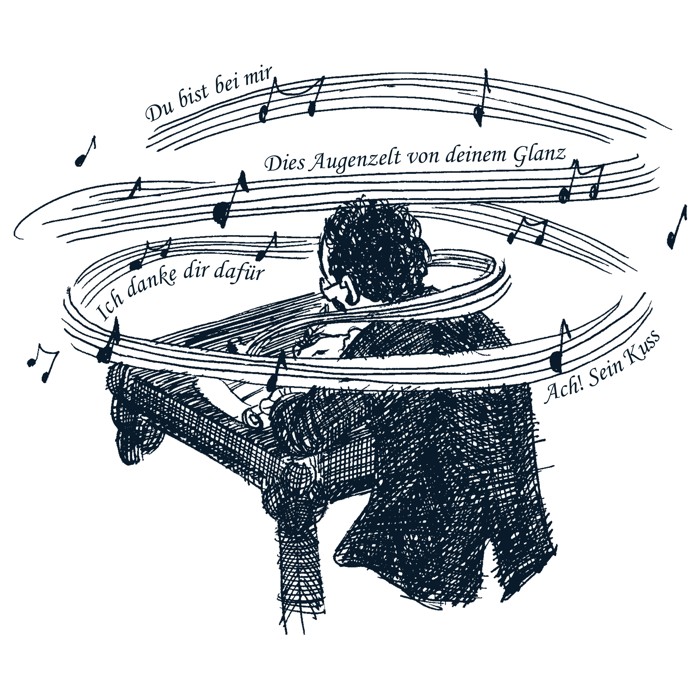





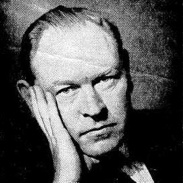

























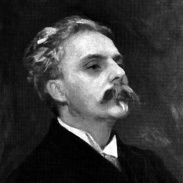









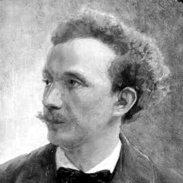
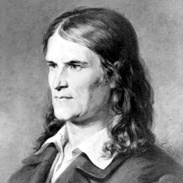


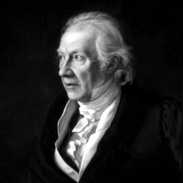






Comments powered by CComment